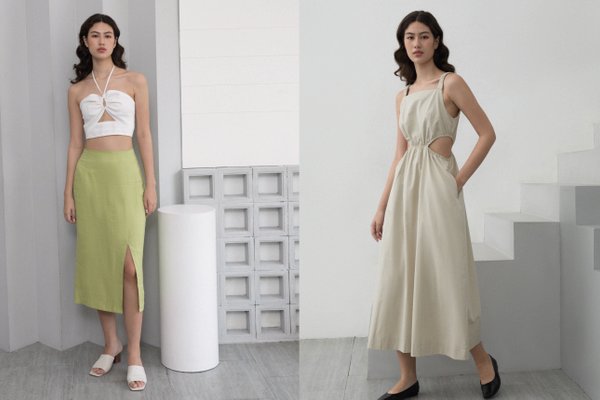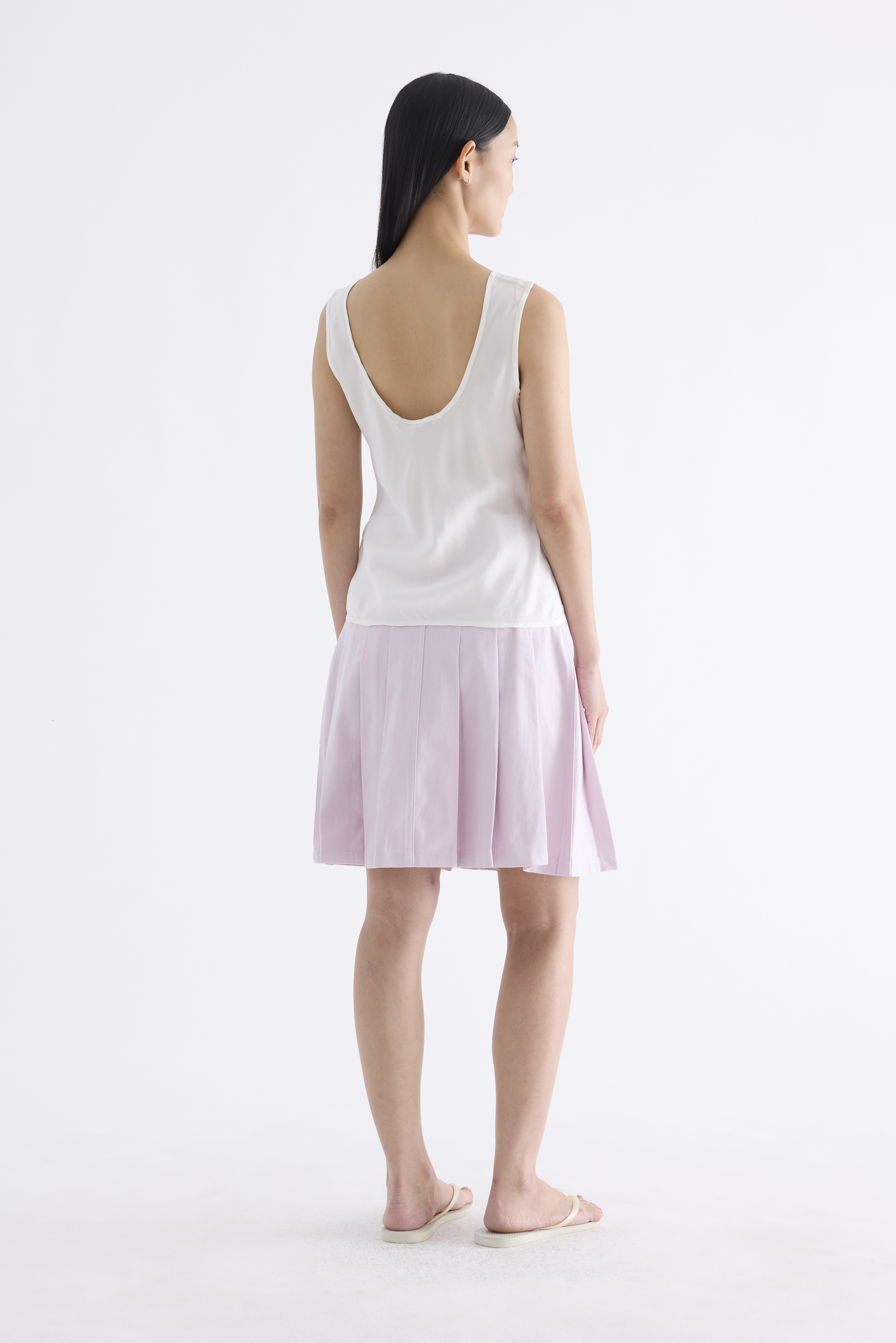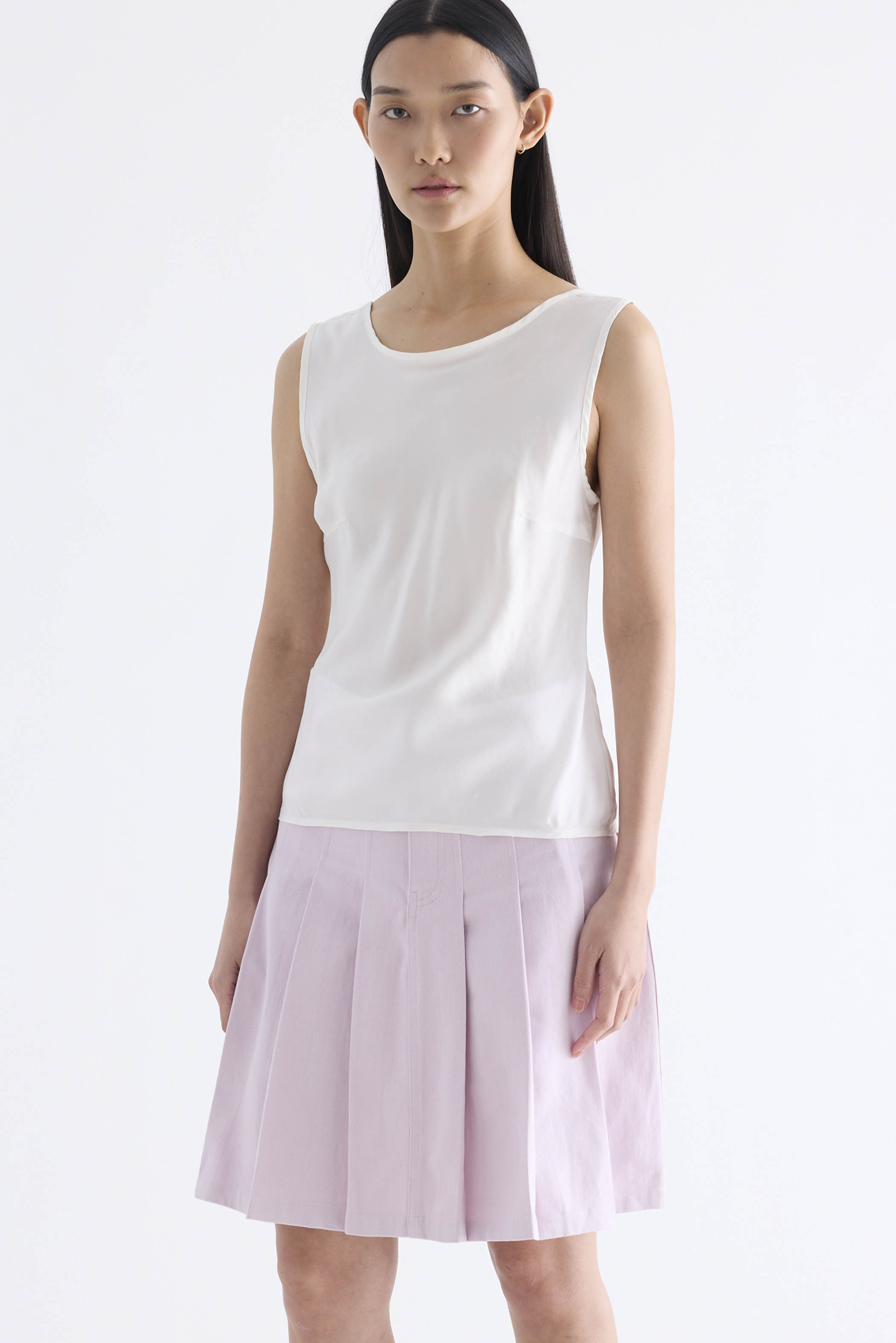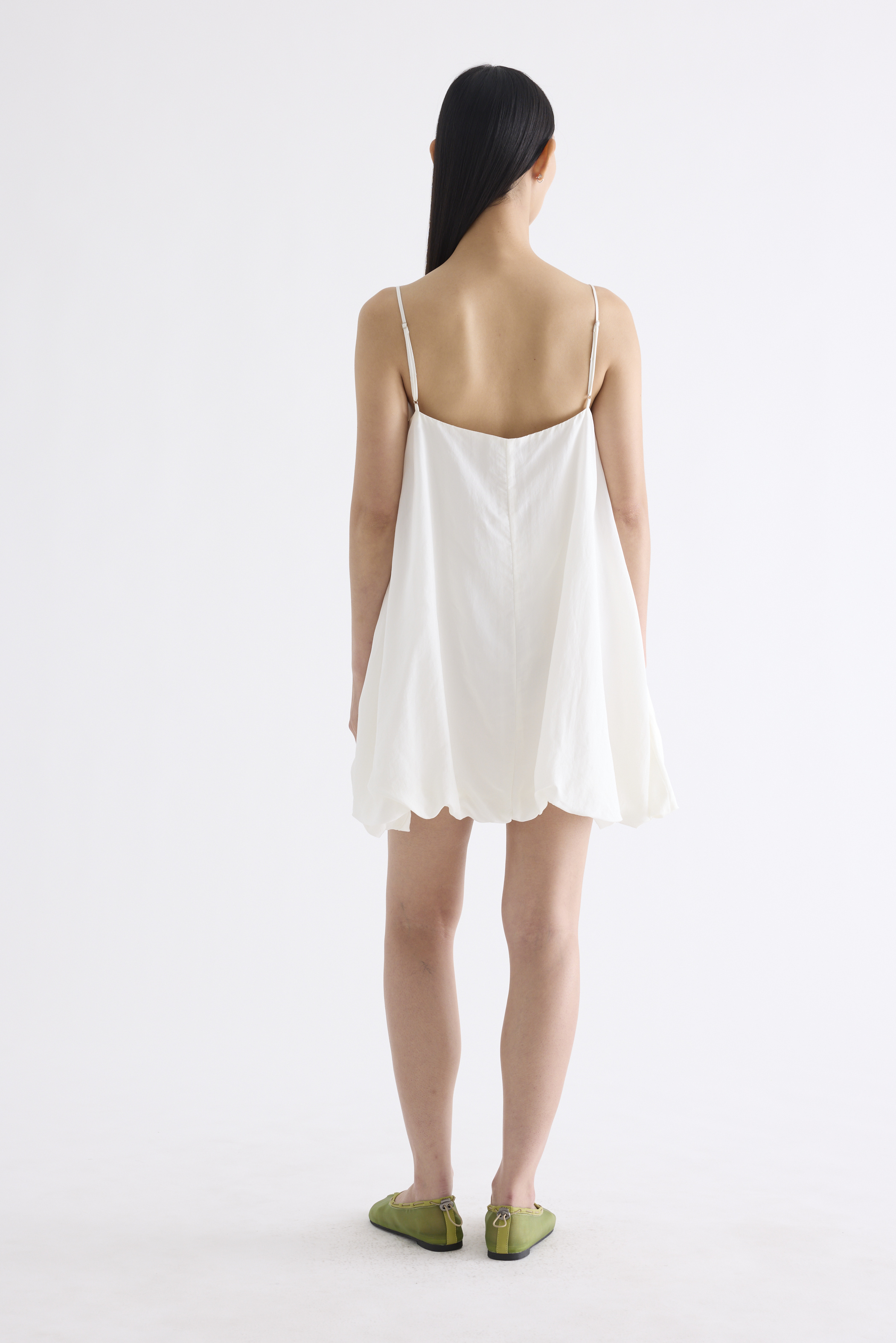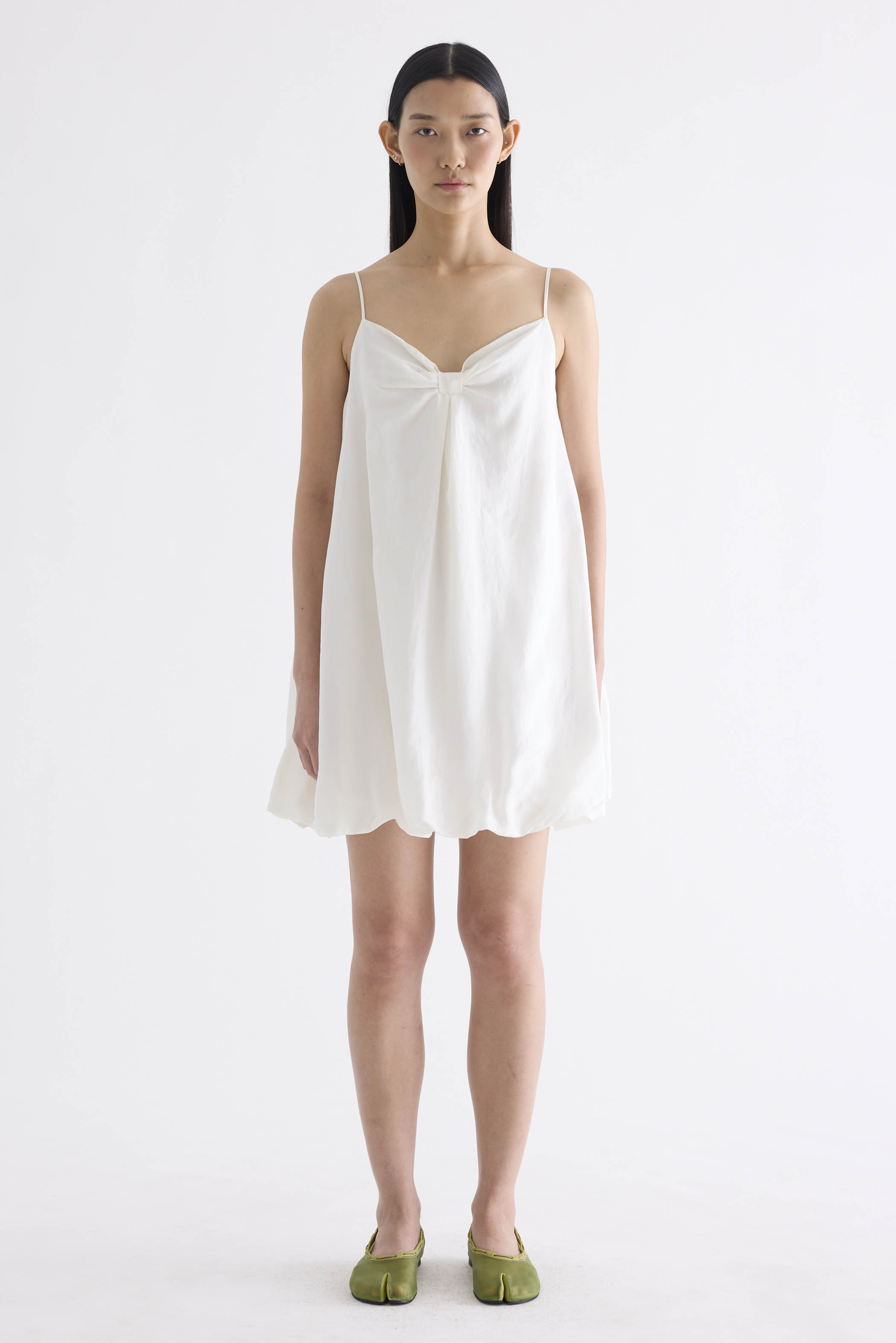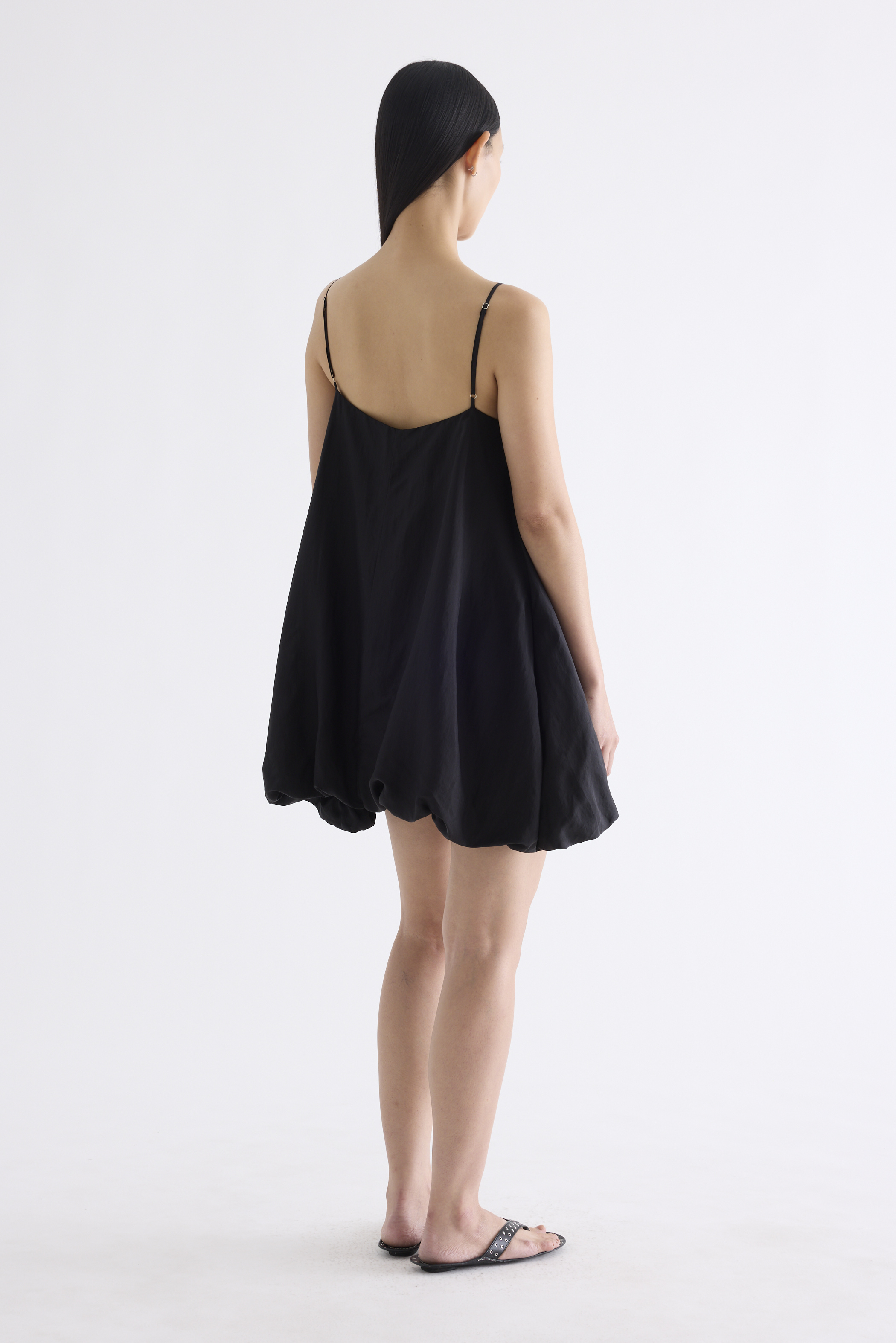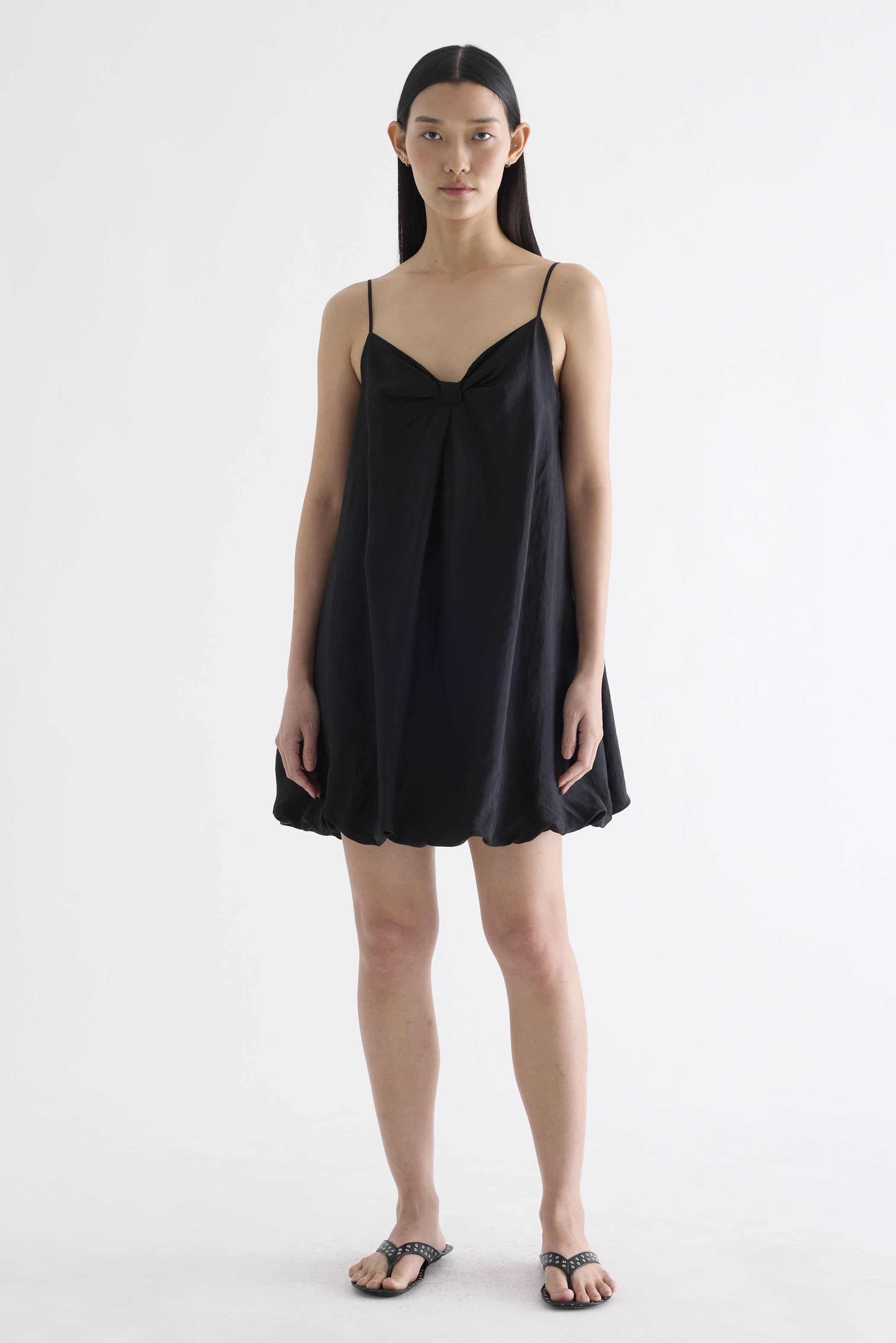We are committed to continually reducing the environmental footprint of our operations and the products we make.
Clothing
Over the past year, we have steadily reduced the use of synthetic fabrics such as polyester and polyester blends in our apparel, in favour of more sustainable fabrics like linen and lyocell. Products we have made mainly with linen and/or lyocell are marked with a green logo to signify that they have been created with fabrics that are more sustainable than conventional ones.
![]()
Linen
Linen is considered one of the most environmentally-friendly fabrics around. Linen is derived from the fibres of the flax plant. Producing linen from flax consumes far less water than is traditionally used in cotton production. The flax plant requires very little pesticides and can be grown on land with poor soil, so it does not compete with food crops. Every part of the flax plant is used to create a worthwhile product, such as linseed oil, so nothing is wasted.
Linen is highly durable and is perfect for hot weather as it is lightweight, breathable and moisture-wicking. Linen clothing stays fresh for longer and requires less frequent washing, thereby reducing water use at home. At the end of its useful life, linen fabric will simply biodegrade.
Limitations and the way forward
While linen takes dye easily, and so requires less dye to colour, the dye that is used may still have some negative effect on the environment. We are exploring the use of lower-impact dyes to mitigate this effect. We also carry a wide range of linen clothing in natural shades that have not been dyed or bleached. Also, while regular linen is already produced using relatively few chemicals and is considered one of the most sustainable fabrics, transitioning to organic linen can further reduce the ecological impact of our clothing.
Lyocell
Lyocell is a cellulose fibre made from wood pulp. It is produced in a closed loop system with economical use of energy and water, and with minimal impact on the environment. The solvent used in the process is non-toxic and a large percentage of it is recaptured and reused in continuous processing. The small amount of effluent discharged is considered non-hazardous. When compared to the manufacture of other cellulose fibres like rayon and viscose, lyocell production is significantly less toxic and wasteful.
Lyocell has a very smooth, soft feel and drapes beautifully. It is lightweight, breathable and absorbs moisture better than cotton. Lyocell is also fully biodegradable.
Limitations and the way forward
Lyocell can sometimes be made with wood from irresponsibly-managed forests. It is difficult to trace the origin of the fibres to guarantee that this is not the case. One way forward is to use only Tencel-branded lyocell, which uses woodstock from certified sustainably-managed forests.
Choosing Consciously
No matter how clothing is made, materials are used and resources expended, so it is important to choose clothing that is well-made and will last beyond seasonal trends. Our versatile and timeless styles will help you build a more sustainable wardrobe.
![]()
